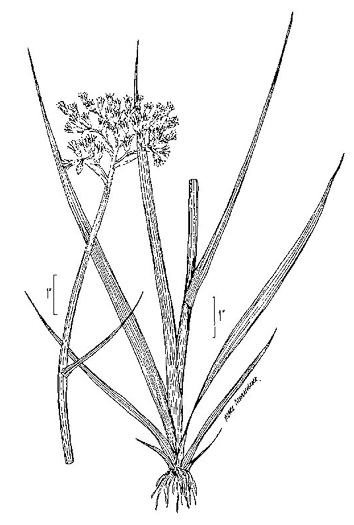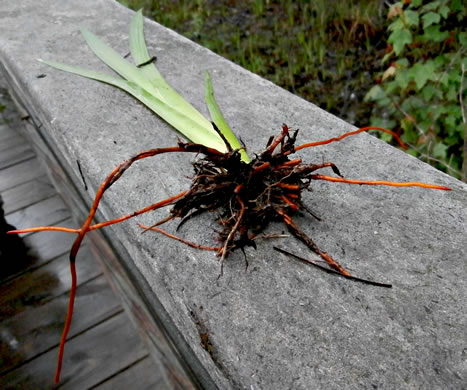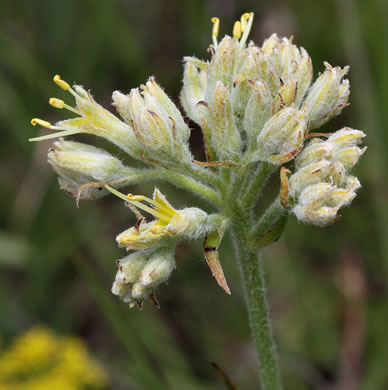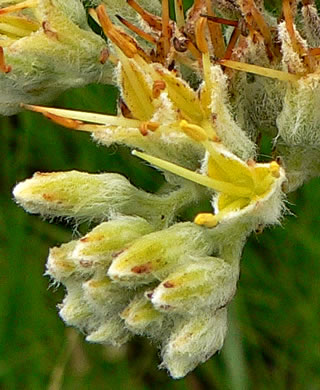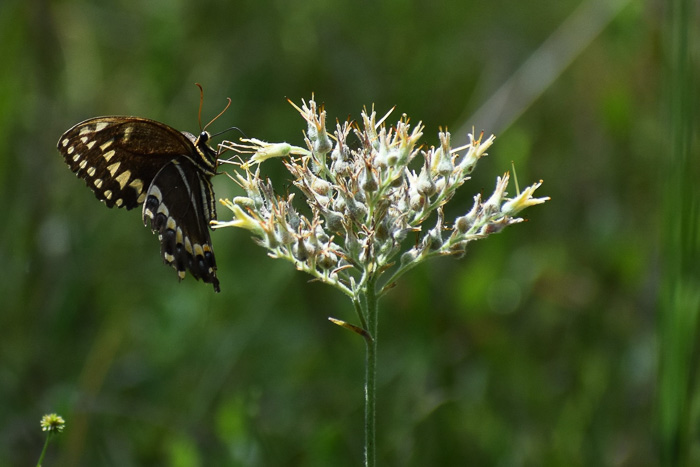Hovering over an image will enlarge it and point out features (works better on desktop than on mobile).
![]() A camera indicates there are pictures.
A camera indicates there are pictures.
![]() A speaker indicates that a botanical name is pronounced.
A speaker indicates that a botanical name is pronounced.
![]() A plus sign after a Latin name indicates that the species is further divided into varieties or subspecies.
A plus sign after a Latin name indicates that the species is further divided into varieties or subspecies.
Most habitat and range descriptions were obtained from Weakley's Flora.
Your search found 1 taxon in the family Haemodoraceae, Bloodwort family, as understood by PLANTS National Database.

![]()
![]() Common Name:
Carolina Redroot
Common Name:
Carolina Redroot
Weakley's Flora: (4/14/23) Lachnanthes caroliniana FAMILY: Haemodoraceae
SYNONYMOUS WITH (ORTHOGRAPHIC VARIANT- CORRECTABLE TYPOGRAPHIC ERROR) PLANTS National Database: Lachnanthes caroliana FAMILY: Haemodoraceae
SYNONYMOUS WITH Vascular Flora of the Carolinas (Radford, Ahles, & Bell, 1968): Lachnanthes caroliniana 045-01-001 FAMILY: Haemodoraceae
Habitat: Wet savannas, pocosin edges, shores of Coastal Plain depression ponds (and similar ponds in the mountains of Virginia), ditches, wet disturbed ground
Common in Coastal Plain
Native to the Carolinas & Georgia
Your search found 1 taxon. You are on page PAGE 1 out of 1 pages.

